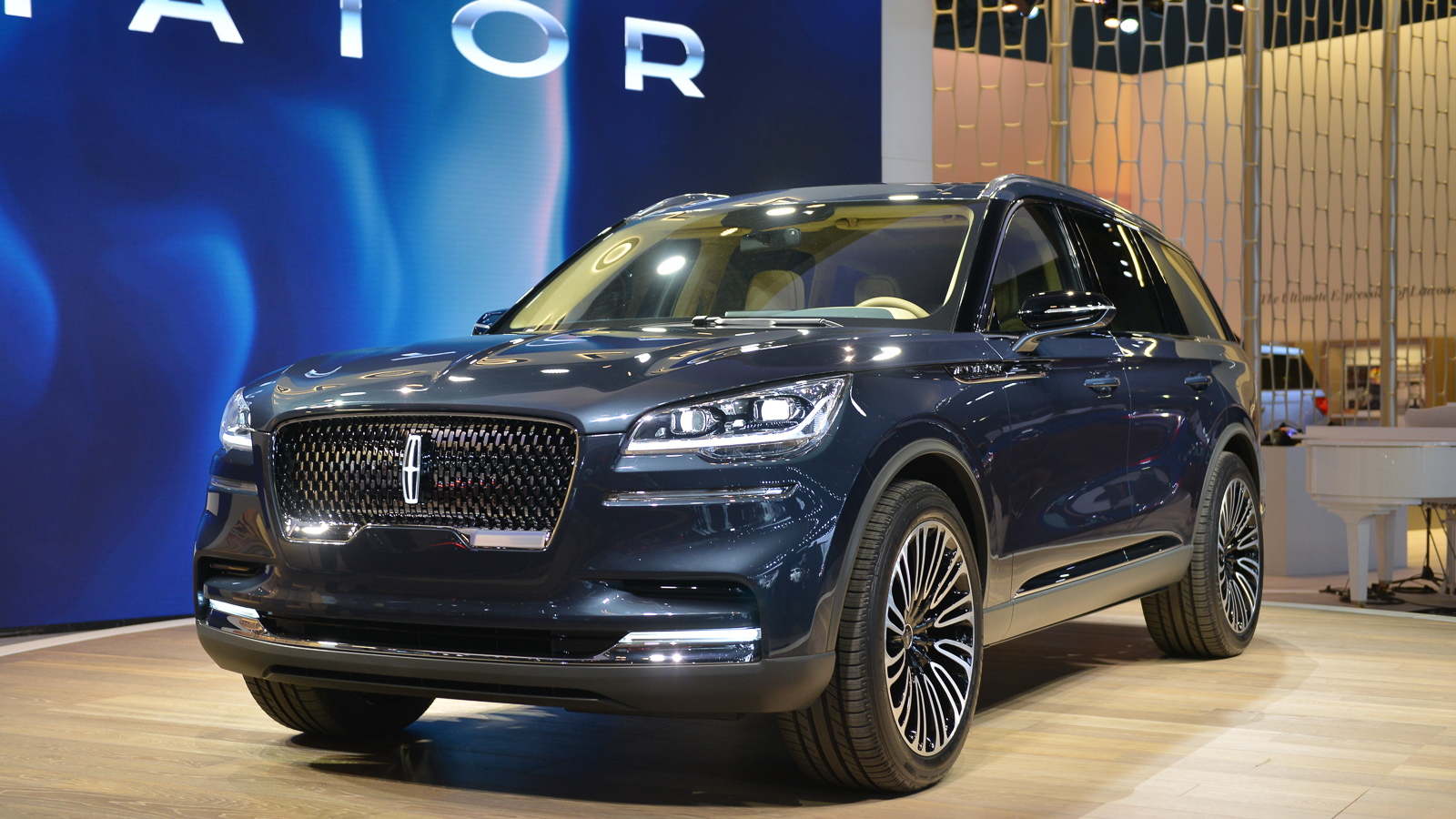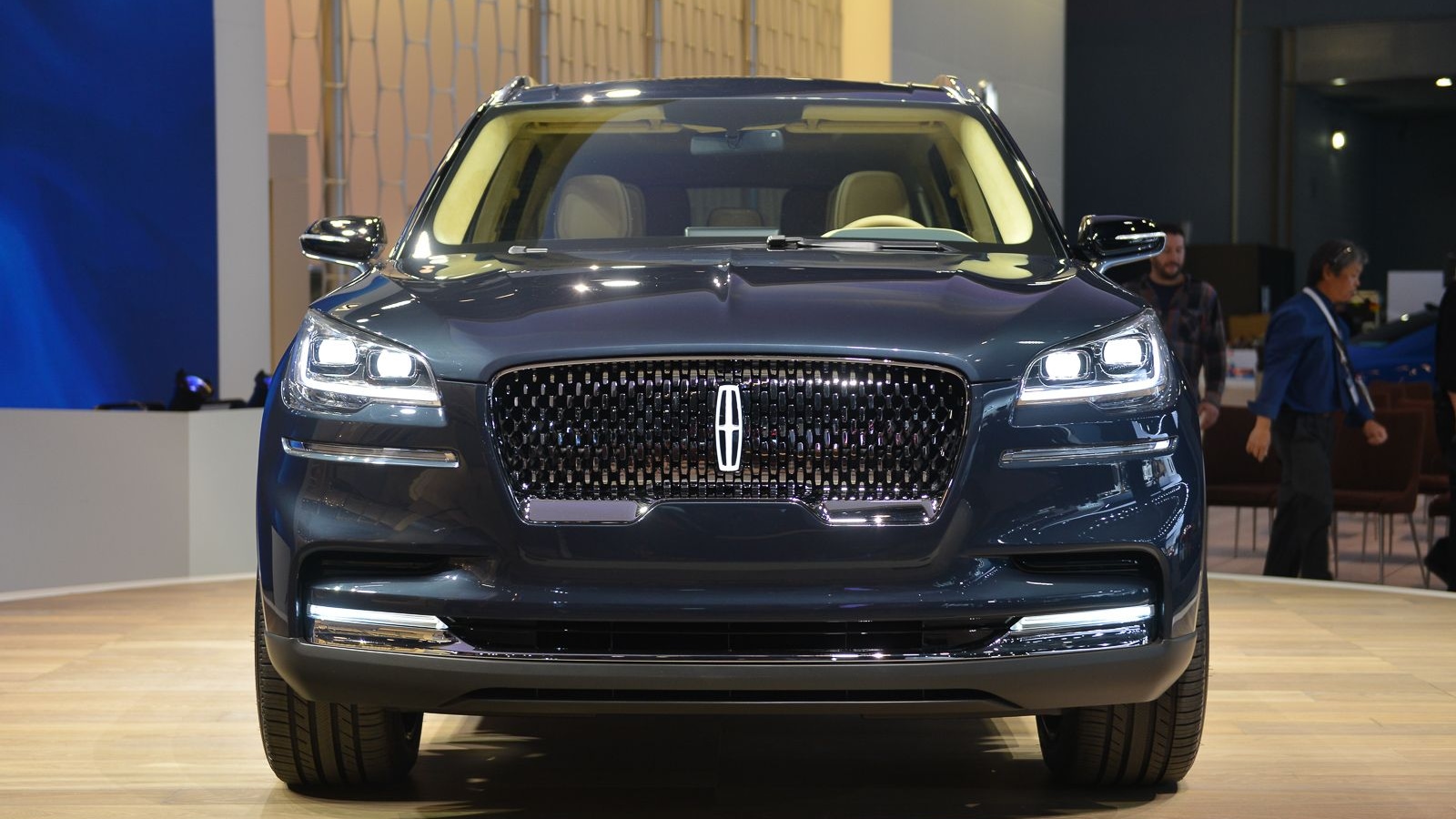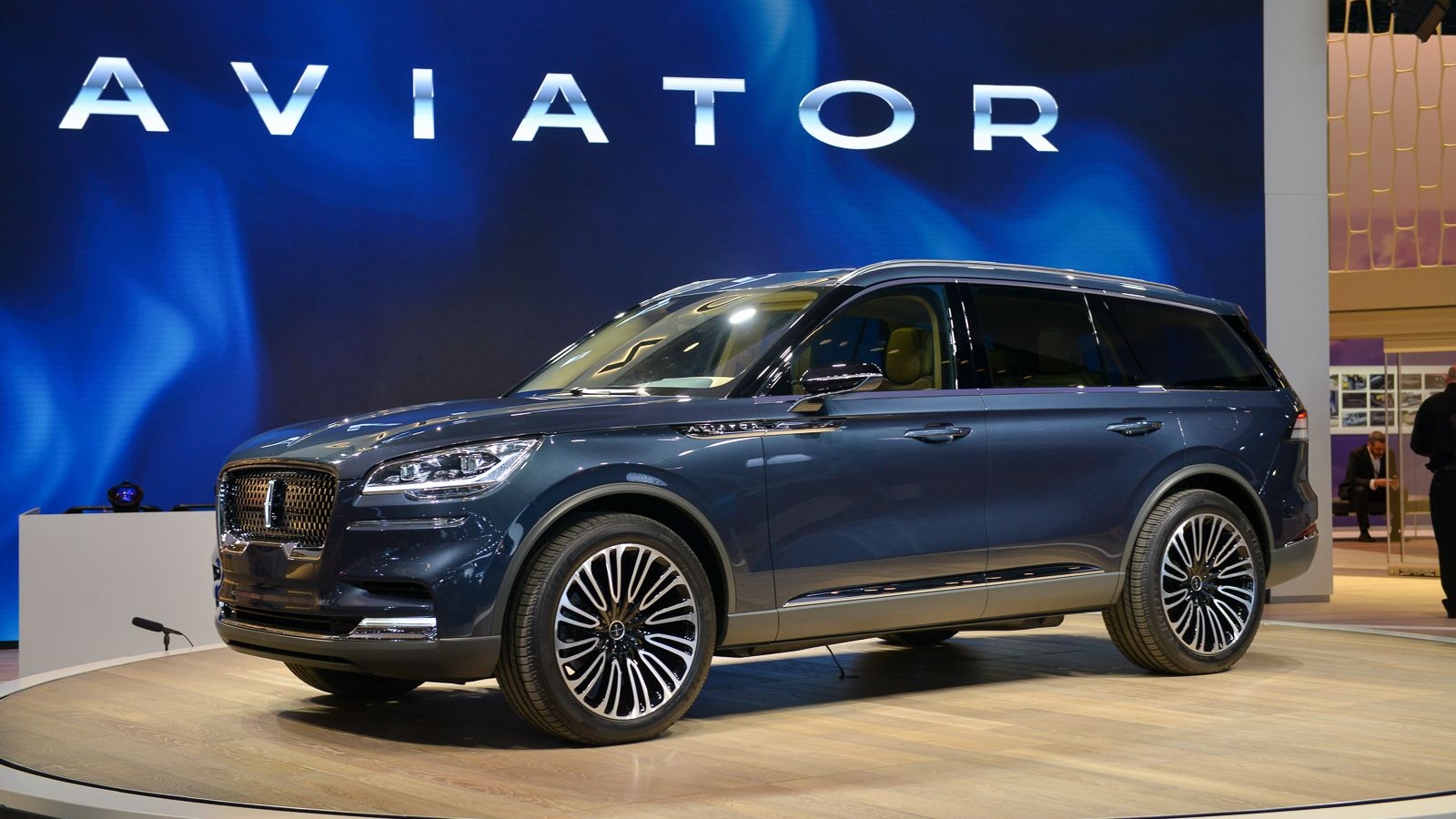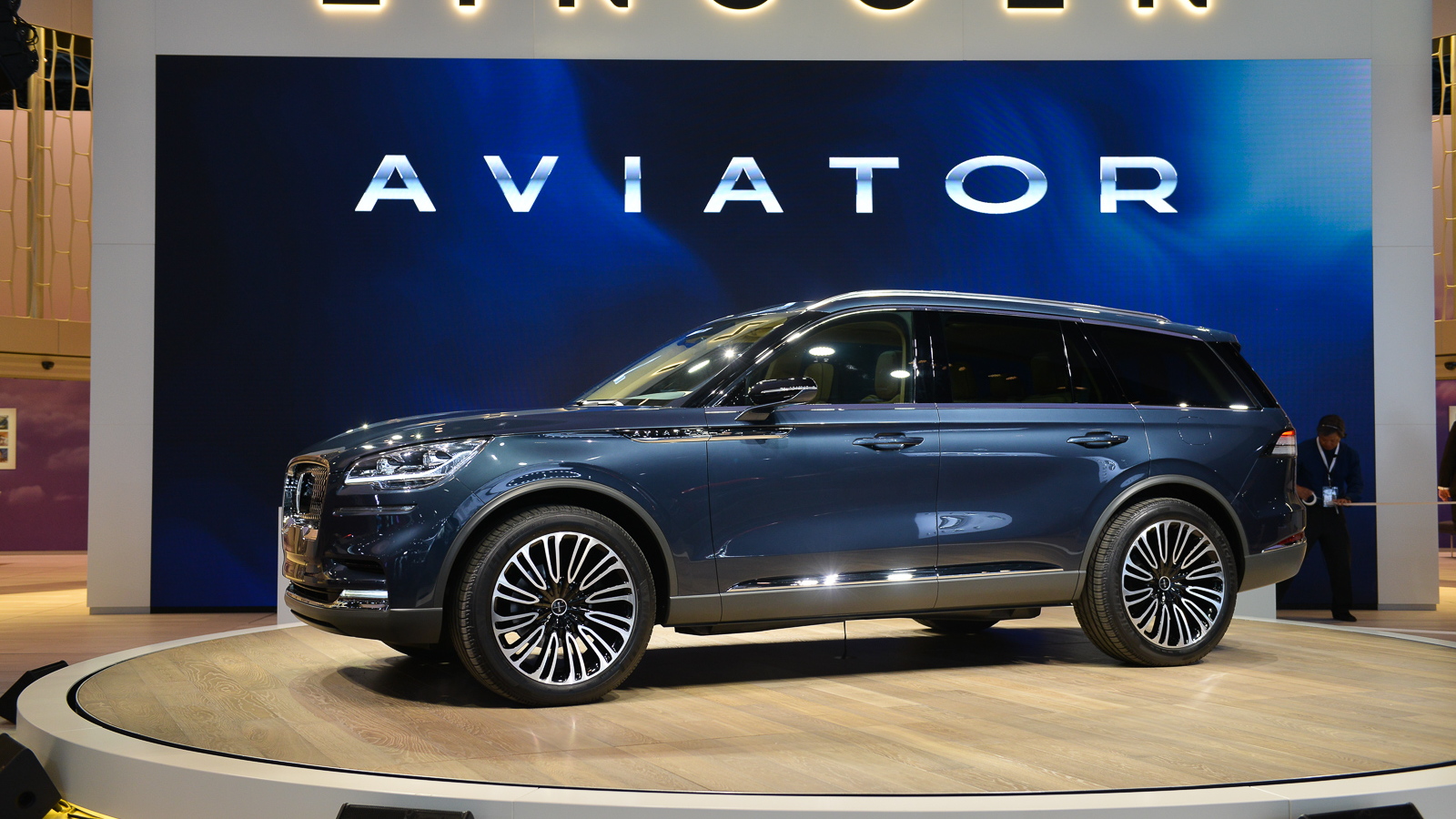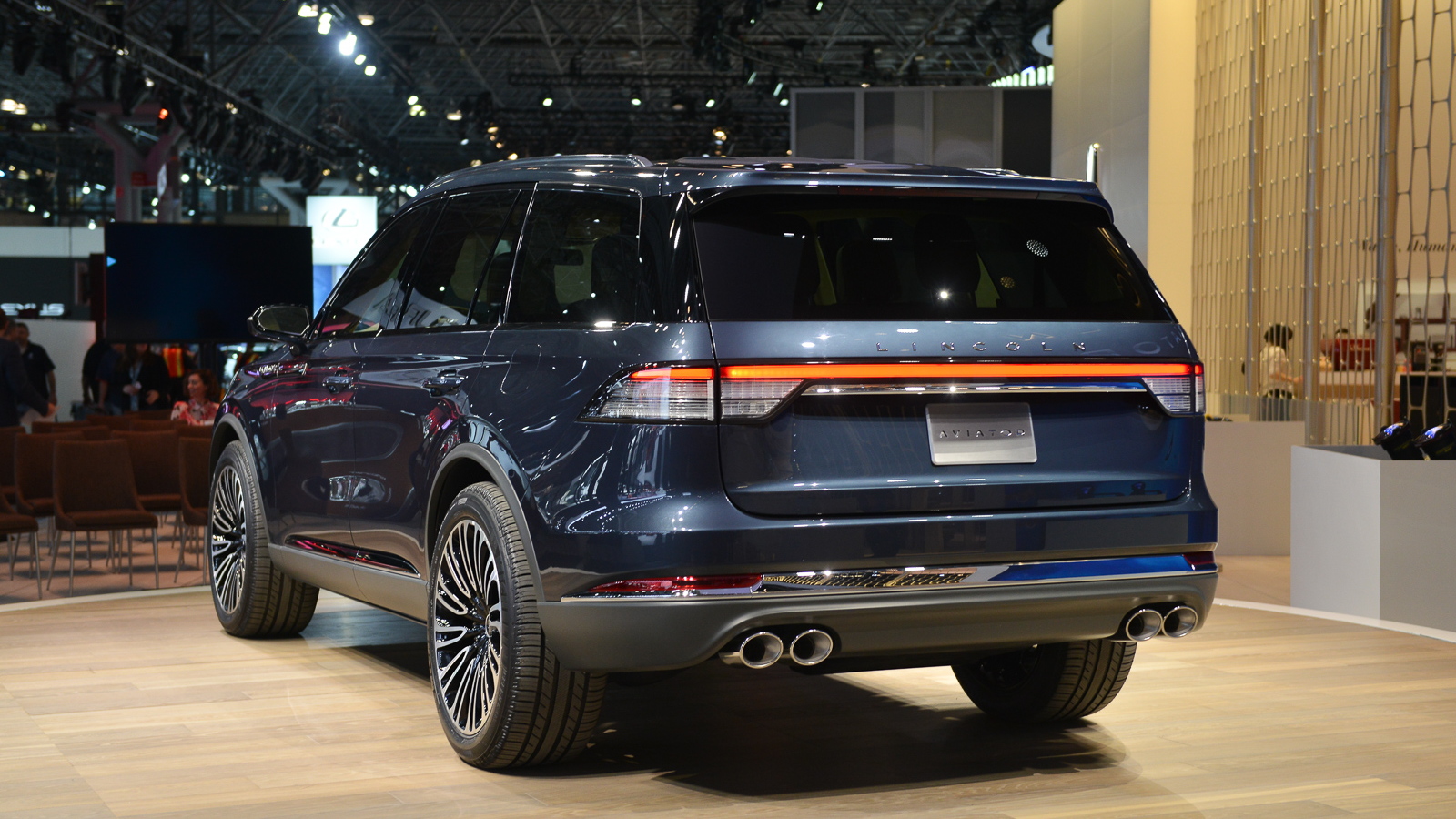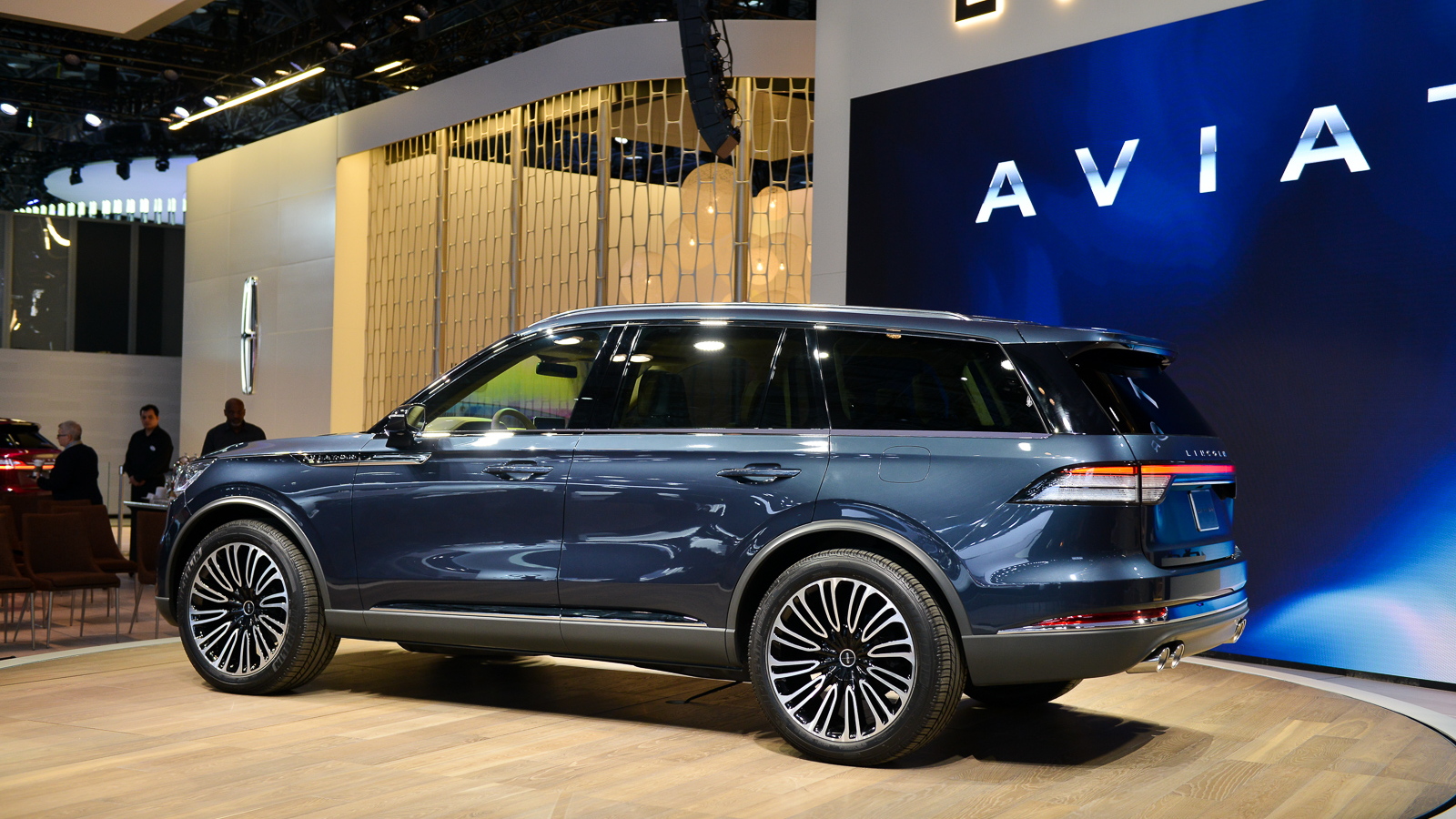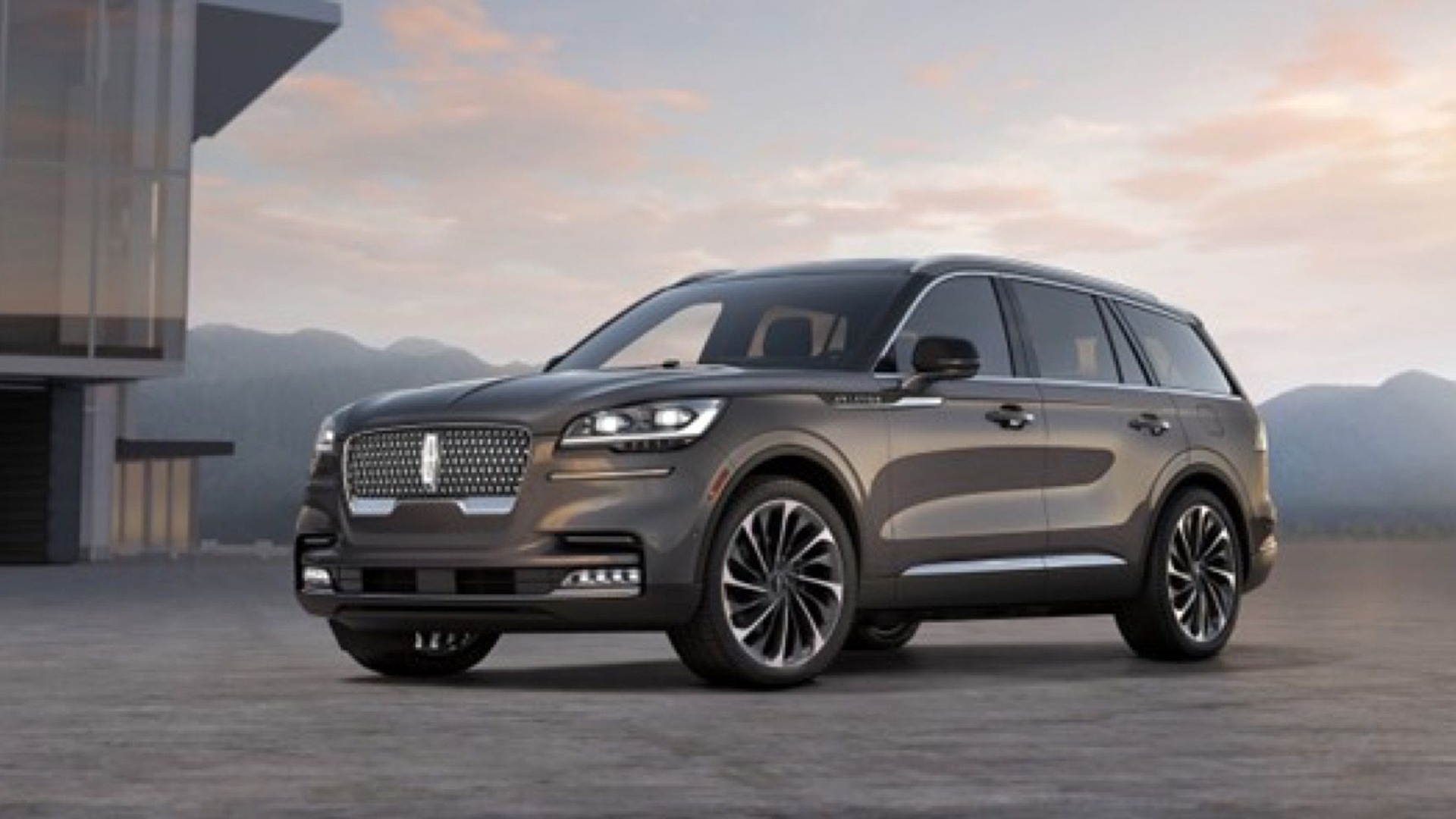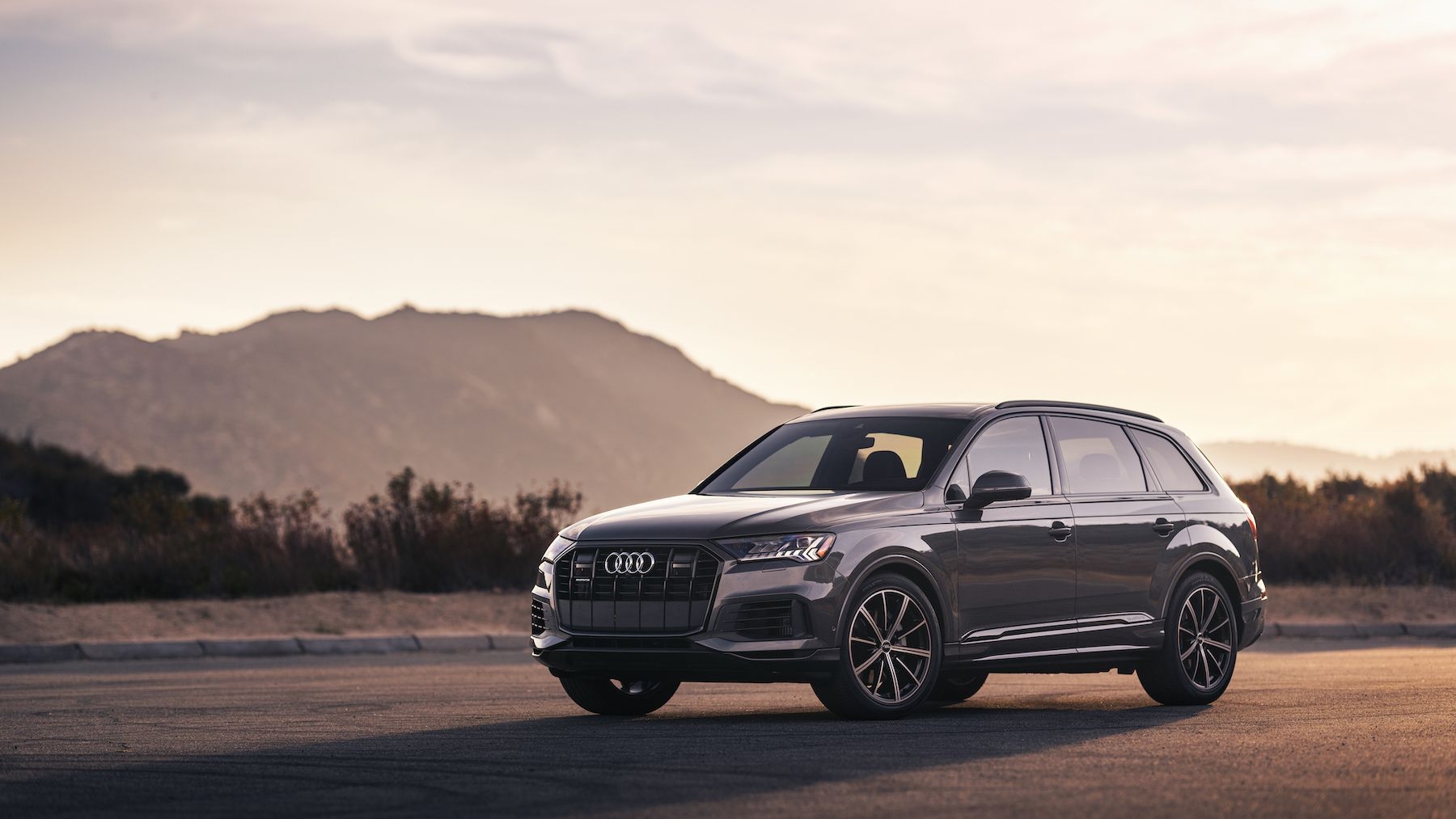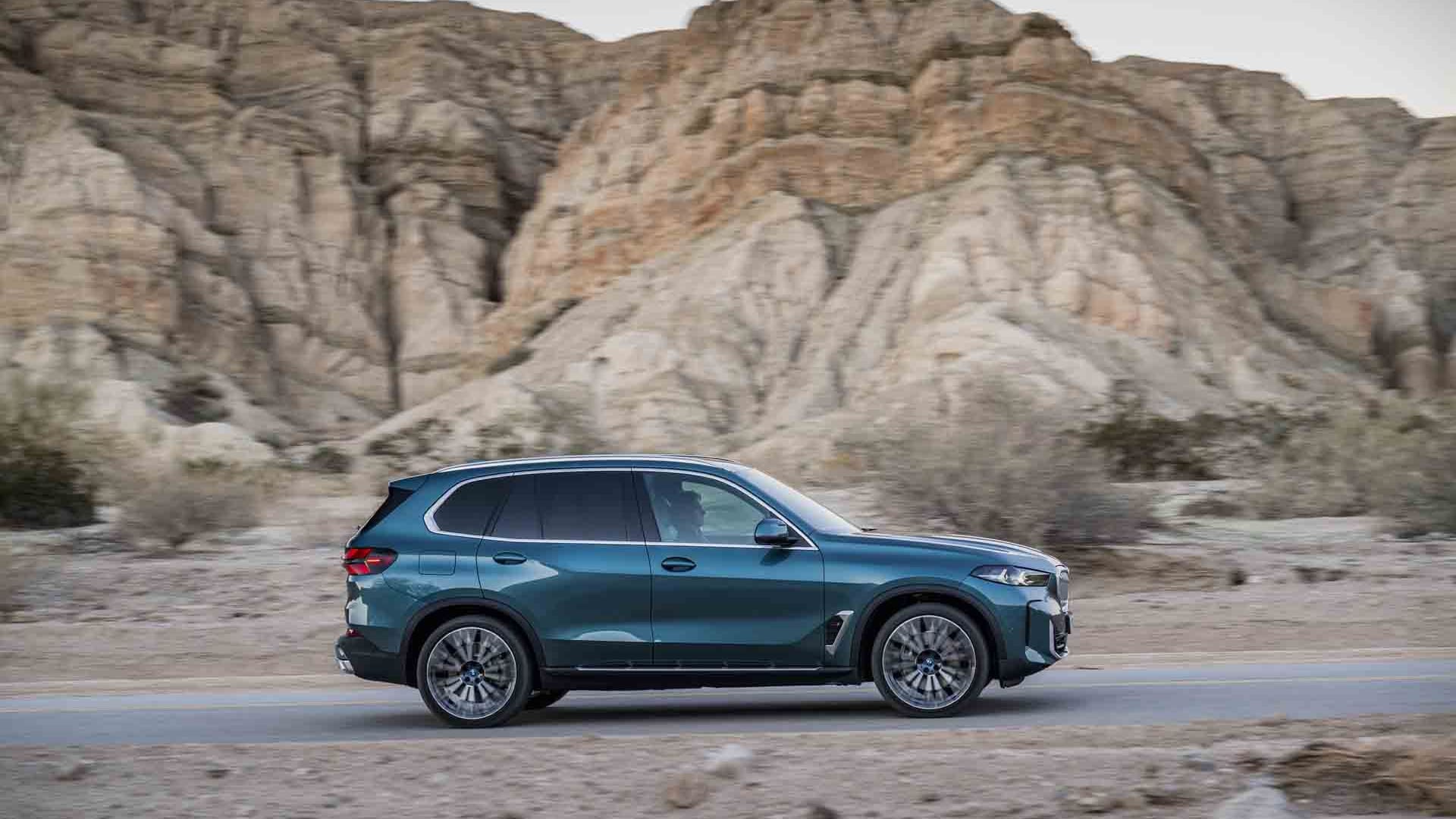More than a decade on since the nameplate bowed out of production, Lincoln's Aviator is finally back.
Unveiled Wednesday at the 2018 New York auto show, a new Aviator SUV carries the influences of the Continental and Navigator and takes things further, providing us with a better view of Lincoln's future. That future is one filled with more SUVs and electrified powertrains.
The Aviator shown in the Big Apple is said to be a “preview” of the production model due on sale in 2019. In other words, it's likely a lot more representative of the upcoming production model than your typical concept.
Lincoln is holding back most of the details until closer to the launch but we know the new Aviator features third-row seats and sits on a rear-wheel-drive platform that will offer the option of all-wheel drive. A new generation of the Ford Explorer also will utilize this platform. The platform could be flexible enough to underpin passenger cars as well, and there's speculation that it could also be converted to work with front-wheel drive. An adjustable suspension that uses a camera to scan the road ahead and automatically adjust the suspension to suit should ensure a smooth ride.
Power comes from a twin-turbocharged engine, and the Aviator will be the first Lincoln model with plug-in tech. The twin-turbocharged engine will likely be a V-6. Lincoln says the powertrain will make the new Aviator “mightier” than many supercars on the road today.
The new platform features a long wheelbase that Lincoln says results in spacious second and third rows. Comfort is further aided by Lincoln's 30-way adjustable seats up front and flexible second-row seats that can recline and slide forward for easy access to the third row. As for the rest of cabin, there's definitely a minimalist theme, with the dash featuring plenty of clear surfaces and strong, horizontal lines.

Lincoln Aviator SUV

Lincoln Aviator SUV

Lincoln Aviator SUV
Tech goodies include a 12-inch screen that serves as the instrument cluster, built-in wi-fi, a wireless charging pad for mobile devices, and locking and starting controlled by owners' smartphones. Ford Motor Company's new Co-Pilot360 suite of electronic driver aids is also standard. It includes automatic emergency braking with pedestrian detection, blind-spot monitors with rear cross-traffic warning, and active lane control. A backup crash prevention system will apply the brakes if it detects the Aviator will hit something when in reverse.
For more from the N.Y. auto show, head to our dedicated hub.
